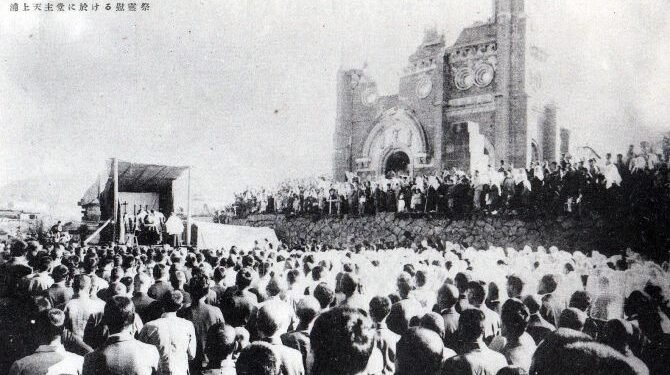By Charles Igwe
Marking the 80th anniversary of the end of World War II, the Catholic Bishops’ Conference of Japan has issued a powerful appeal for the global abolition of nuclear weapons, warning that the world must never again witness the devastation experienced in Hiroshima and Nagasaki.
In a statement released on June 20 titled Declaration on the Abolition of Nuclear Weapons 2025, the bishops stressed their unique moral responsibility as leaders of the only nation to have suffered nuclear attacks during wartime. “We carry deeply engraved in our hearts the heavy history and pain that atomic bomb survivors and citizens of Hiroshima and Nagasaki have suffered,” they wrote, reaffirming their “strong commitment to the abolition of nuclear weapons.”
The 1945 atomic bombings of Hiroshima and Nagasaki resulted in an estimated combined death toll of over 200,000 by the end of that year, with many more suffering from long-term radiation effects such as leukemia and cancer. The bishops described nuclear weapons as “inhuman” and condemned their continued existence as a threat to global security, human dignity, and creation itself.
Their appeal comes amid renewed nuclear tensions in the Middle East. Just two days after the statement was issued, the United States launched airstrikes on Iran’s nuclear facilities, with President Donald Trump declaring that the main sites had been “obliterated.” While a ceasefire between Israel and Iran has since been announced, concerns persist over violations and the potential for further escalation.
In response to this climate of instability, the Japanese bishops called the doctrine of nuclear deterrence “ineffective” and warned that it perpetuates a dangerous “security dilemma” that risks pushing the world to the brink of nuclear war. “We cannot tolerate this kind of thinking,” they stated, insisting that the use or threat of nuclear weapons has no place in resolving international disputes.
“The existence of nuclear weapons is a serious threat to all life,” the bishops said. “It degrades the dignity of human beings and the world that God created to be very good.”
They committed to continued public education on the impact of the 1945 bombings and expressed their intention to support global disarmament campaigns, advocating for peace through dialogue and international cooperation.
“This tragedy must not be repeated,” they concluded, urging the international community to act decisively to eliminate nuclear weapons and protect future generations from the horrors of atomic warfare.



















































